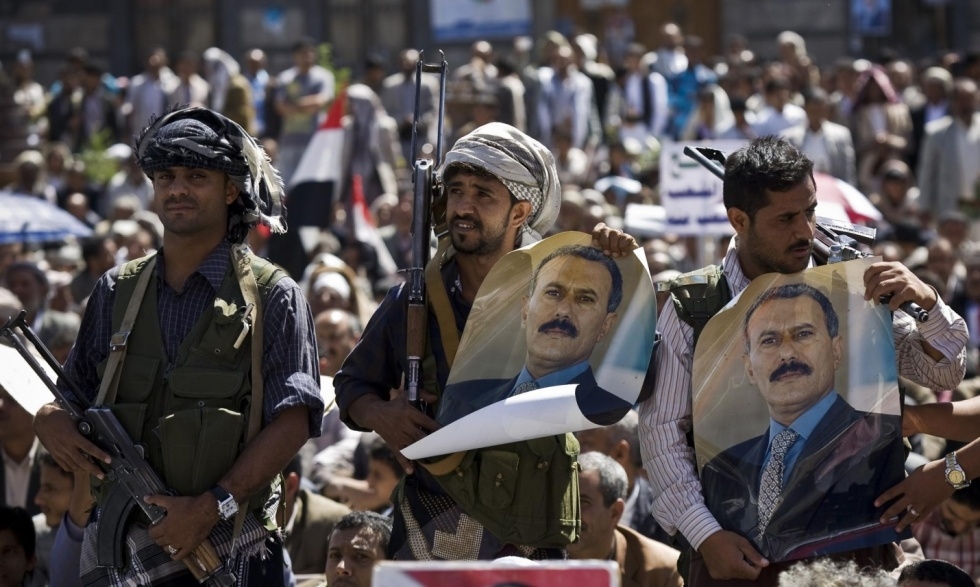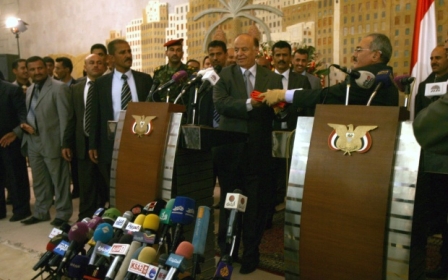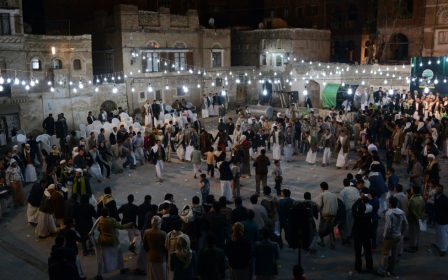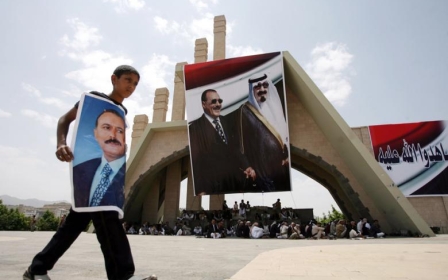UN report reveals collusion between ex-president Saleh and Yemen's Houthis

An investigation conducted on behalf of the United Nations Security Council has revealed how Iran-backed Houthi rebels who seized power in Yemen last month were aided by Yemen’s former leader, Ali Abdullah Saleh, a US ally who had been grooming his son to replace him when he was deposed by mass protests in 2011.
Saleh, who ruled Yemen for 33 years and has estimated assets of $32-60 billion according to the UN, “provided direct support” to the Shiite Houthi militia who last month toppled the government of president Abd Rabbuh Mansour Hadi, according to sources quoted in a report published on Tuesday by the UN.
Saleh funded the Houthis, ordered his supporters not to curb the group’s fighters as they descended on the capital last year, and made use of an army unit formerly commanded by his son, Ahmed Ali Saleh, burnishing the predominantly Shiite group he spent years fighting as president in order to “seek revenge” against those who helped topple him in 2011, the sources told the UN.
The 54-page report – compiled by a panel of four experts who spent a year travelling Yemen and the region to investigate spoilers of the country's 2012 transition agreement – gives the most detailed account to date of the Houthis' lightning rise to power and raises troubling questions about the Yemeni government and foreign powers’ future ability to hold Yemen together.
Two years ago Yemen was seen by many observers in the West as a success story. The GCC deal, orchestrated by the UN, Saudi Arabia and the United States, which saw Saleh step down in exchange for immunity and Hadi ushered in with promises of national dialogue and a new constitution, appeared to have spared Yemen from an impending civil war.
But in late September the Houthis, an Islamist movement who fought a decade-long war with the government and took part in the 2011 uprising against Saleh, breezed into the capital, seizing control of ministries, banks, government-run newspapers and army bases. Last week Hadi, who had been held under house arrest by the Houthis since he resigned last month, escaped to the southern port city of Aden where he rescinded his resignation and called on world powers to support him against the “Houthi coup”.
The UN report, which is based on extensive interviews and a close-reading of local media, focuses on the activities of Ali Abdullah Saleh and two senior Houthi leaders, Abd al-Khaliq al-Houthi and Abdullah Yahya al-Hakim. All three are facing sanctions that, if enforced by the UN’s member states, would involve asset freezing and international travel bans.
The report concludes that Saleh, 66, maintains “large support and influence” among his ruling party and that since being toppled has “taken every opportunity to make President Hadi look weak and not in control." The strategy to delegitimise Hadi, according to one confidential source quoted in the report, included “organising demonstrations against the government and attacks on the oil, gas and electricity infrastructure of the country.” Saleh also retains control of a large military camp named Raymat Humaid in his hometown of Sanhan.
With Yemen currently lacking a president and its politics in disarray, some Yemenis have speculated that future elections could see Saleh’s son, Ahmed Ali Saleh, a former military commander, come to power. Despite Saleh’s eldest son being dismissed as commander of the Republican Guard in 2013, he still maintains influence over large numbers of the elite troops and has “looted weapons and other state property” since his dismissal, sources told the UN.
The UN claims to be in possession of documents from senior Yemeni army officers identifying weapons that were moved to the Saleh family’s private military base in 2011 including thousands of rifles and pistols and dozens of heavy machine guns, mortar canons, rocket-propelled grenades, sniper rifles and SAM 2 and SAM 7 anti-aircraft missiles.
Houthi violations
Testimonies in the report also provide a glimpse of the scale of the Houthis' takeover of the country and the human rights violations the group has committed. One source explains how the Houthis are controlling the country’s main international airport in Sanaa:
A confidential source also informed the Panel that the Houthi forces interfere in every operational function at the airport, including the monitoring of the passenger flight manifests, detaining their adversaries whether entering or leaving the country, controlling flight movements and checking diplomatic baggage. Another confidential source informed the Panel of an incident in which Houthi forces ran onto the runway and fired a rocket-propelled grenade at a plane belonging to a GCC country in an attempt to prevent it from departure, but fortunately it missed its target.
The Houthi rebels have also been accused of systematically targeting peaceful protesters in the capital with death threats, abductions and severe beatings.
Schools appeared to be a target of Houthi forces during their takeover of territory in Amran governorate ... Interlocutors have provided information related to the killing of civilians, unlawful detention and the systematic looting and destruction of private property. The military use of schools and health-care facilities by the warring factions, including as firing positions and barracks, remains a concern. In total, at least 124 civilians, including minors (young men), have been unlawfully detained by the Houthis in Amran and Sanaa since July 2014.
The UN Panel has reportedly submitted letters to 20 countries where information indicates that assets belonging to Saleh may be located. So far, according to the report, not a single member state had responded positively to the enquiry.
New MEE newsletter: Jerusalem Dispatch
Sign up to get the latest insights and analysis on Israel-Palestine, alongside Turkey Unpacked and other MEE newsletters
Middle East Eye delivers independent and unrivalled coverage and analysis of the Middle East, North Africa and beyond. To learn more about republishing this content and the associated fees, please fill out this form. More about MEE can be found here.




